
views
Talking About Who You Are Now

Choose an age. Before doing anything else, decide how old you want your future self to be when you read this letter. You may want to read the letter when you’re 18, 25, or 30 years old. Choosing an age will help you define the goals you want to achieve by that time in your life. You may want to choose an age that puts you in different circumstances than you are currently in. If you write the letter as a freshman in high school and read it when you’re in college, you’ll be able to see how much your life has changed and whether or not your goals have been met.
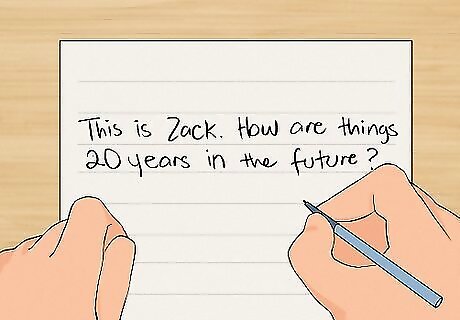
Be casual. You’re writing this letter to yourself, so don’t feel you have to take a formal tone. Write as though you are talking to your best friend. When talking about your current self in this letter, use “I” language. When talking about your future self in this letter, use “you” language.
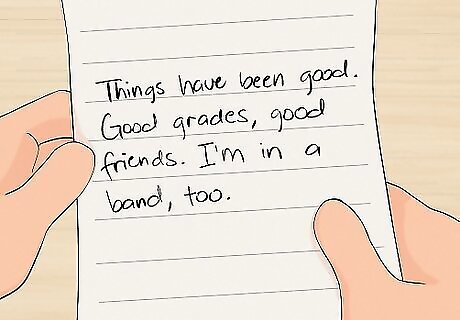
Summarize your current self. Your letter should start with a quick reminder of who you currently are. Think about mentioning your recent accomplishments, such as a 4.0 GPA, and current interests, including extracurricular activities. This will allow you to see how much your life has changed since you wrote the letter.

Note your fears. Think about fears you may have, such as speaking in front of a group, moving out after high school, or not getting accepted at the college you want to go to. You’ll be able to see if you’ve overcome these issues in the future. Also, thinking about them now may help you realize that they may not be so bad after all, or even help you come up with strategies to cope or a backup plan.
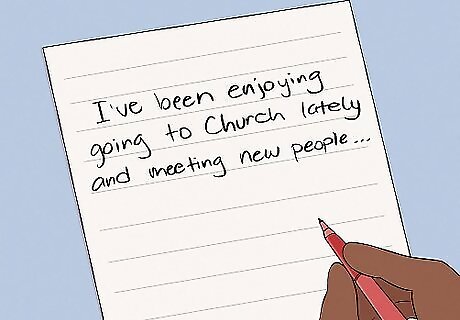
Identify your key values and beliefs. Ask yourself what guides the current you. Your belief system (whether religious or secular) and your personal code of ethics play a large role in your actions. Making yourself conscious of your values can help shape your ideas of who you want to be in the future. Include information about your church, if you belong to one, or values like accepting everyone’s faith, or lack thereof. Add morals that guide you, such as always being kind, or helping others in need.
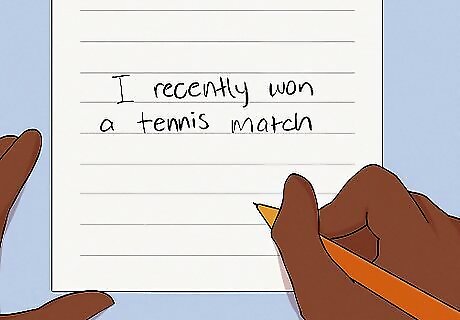
Note your skills and abilities. Pick out a few skills or abilities you can clearly identify in your current life, like winning a tennis tournament, leading the marching band, or organizing school functions. You may be a great writer or excel at math. Thinking about what you are good at now can help you decide what you want to accomplish later in life.
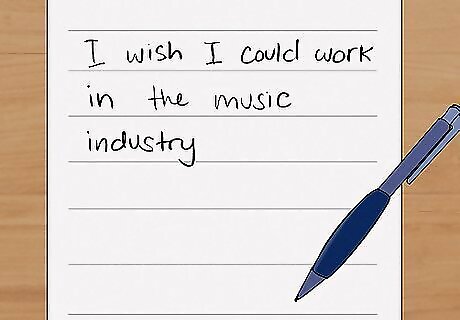
Define your goals and hopes. Write about things that are important to you now, such as playing varsity soccer or getting into a good college. You should also think about what you hope to accomplish in the future, such as travel to Europe, publish an article in a magazine, or get your band a gig.
Addressing Your Future Self
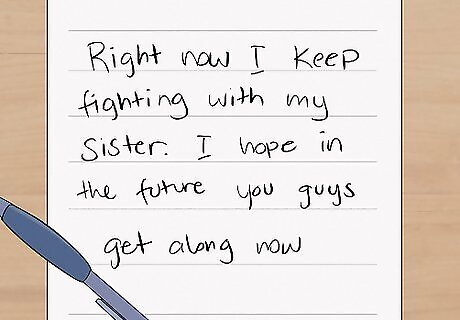
Add things you want to stop, continue, and start doing. Perhaps you want to quit arguing with your siblings or stop biting your nails. Maybe you want to continue going to church every week or keep your grades up. You may want to start volunteering in your community or join a sport or club. Put these goals in your letter to see if you have achieved them in the future.

Give yourself advice. Think about what advice you want to give your future self. Your advice can be simple or complex. Examples include “be nice to Mom,” “invest money in the stock market,” “attend church every week,” “don’t worry so much, everything will be OK,” “take college seriously,” or “save up money for a nice car.” Consider what issues you struggle with currently to help you think of advice for your future self.
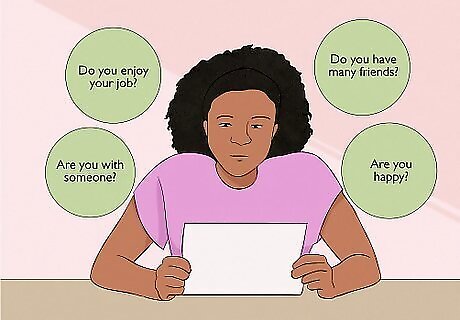
Ask yourself questions. These questions should make the current you reflect on what you’ll need to do to become who you want to be, while making the future you reflect on what you’ve done to reach the point you’ll be at. You can ask yourself: Do you enjoy your job? What do you do in order to relax? Who is the most important person in your life? What is your relationship with your parents like? How do they treat you and how do you treat them? If you could change one thing about your life, what would it be?
Sealing and Storing the Letter
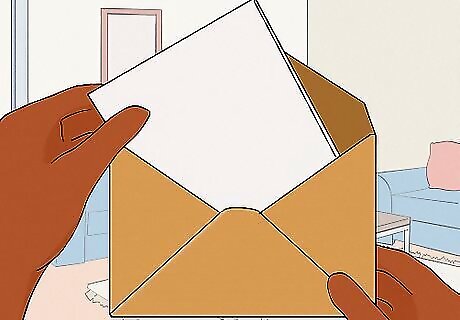
Seal the letter. Don’t be tempted to read the letter before it is time. Seal it in an envelope or tape it closed. This will also help preserve the letter, especially if you don’t plan to read it for 10-20 years. If your letter is digital, archive it or move it to a folder that you can find when it is time to read the letter.

Store the letter in a safe place. If you’ve chosen to write or print a hardcopy of your letter, you need to keep it somewhere that is both readily accessible and safe from the elements. If the letter itself isn’t easy to spot in your everyday life, you’ll need to write yourself a note that will be; otherwise, you may forget about the letter when it’s finally time to read it. You can store the letter in a memory box or even put it in a time capsule. If you keep a journal, consider writing the letter directly in your journal and marking the page, or writing the letter separately and tucking it in between the pages of your journal.
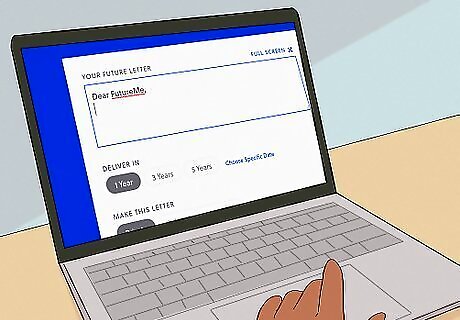
Use technology to send your letter. Search out and use a program, website, or application that will let you send emails/texts to your future self. Note, though, that this option works better for short-term letters than long-term ones since you can’t be certain that the website or application you use will still be around 20 years into the future. You might consider using a digital calendar (like Google Calendars), note-taking software (like Evernote), or a letter-writing website (like FutureMe).
















Comments
0 comment